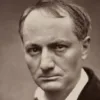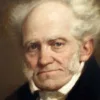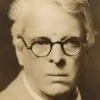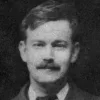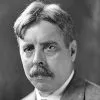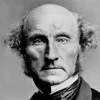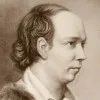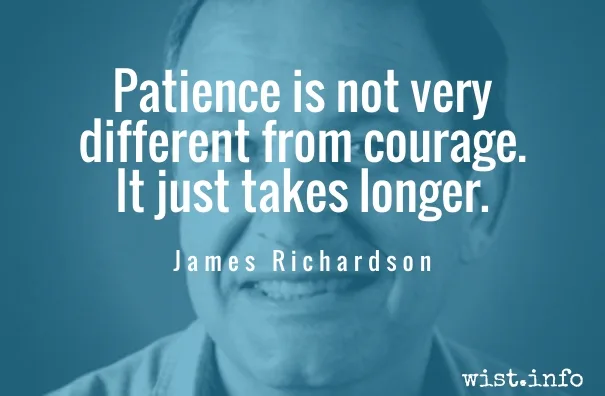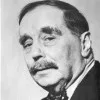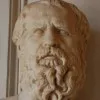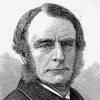Will the gods grant a morrow for to-day?
No mortal can declare;
Give! all thou giv’st with open hand away
Escapes thy greedy heir.
Once thou art dead, once Minos on his bench
Thy doom for thee hath writ,
Birth, eloquence, devotion, nought can wrench
Thy spirit from the pit,
Torquatus!
[Quis scit an adiciant hodiernae crastina summae
tempora di superi?
Cuncta manus avidas fugient heredis amico
quae dederis animo.
Cum semel occideris et de te, splendida, Minos
fecerit arbitria,
non, Torquate, genus, non te facundia, non te
restituet pietas.]Horace (65-8 BC) Roman poet, satirist, soldier, politician [Quintus Horatius Flaccus]
Odes [Carmina], Book 4, # 7, l. 17ff (4.7.17-24) (23 BC) [tr. Gladstone (1894)]
(Source)
(Source (Latin)). Alternate translations:Who knows if Iove unto thy life's past score
Will adde one morning more?
When thou art dead, and Rhadamanthus just
Sentence hath spoke thee dust,
Thy blood, nor eloquence can ransome thee,
No nor thy piety.
[tr. Fanshaw; ed. Brome (1666)]Who knows if stubborn Fate will prove so kind,
And joyn to this another day?
What e're is for thy greedy Heir design'd,
Will slip his Hands, and fly away:
When thou art gone, and Minos Sentence read,
Torquatus there is no return,
Thy Fame, nor all thy learned Tongue can plead,
Nor goodness shall unseal the Urn.
[tr. Creech (1684)]Can Hope assure you one more day to live
From powers above?
You rescue from your heir whate'er you give
The self you love.
When life is o'er, and Minos has rehearsed
The grand last doom,
Not birth, nor eloquence, nor worth, shall burst
Torquatus' tomb.
[tr. Conington (1872)]Who knows whether the gods above will add to this day’s reckoning the space of to-morrow? Every thing, which you shall indulge to your beloved soul, will escape the greedy hands of your heir. When once, Torquatus, you shall be dead, and Minos shall have made his awful decisions concerning you; not your family, not you eloquence, not your piety shall restore you.
[tr. Smart/Buckley (1853)]Who knows, if they who all our Fates control,
Will add a morrow to thy brief to-day?
Then think of this, -- What to a friendly soul
Thy hand doth give shall 'scape thine heir's rapacious sway.
When thou, Torquatus, once hast vanish'd hence,
And o'er thee Minos' great decree is writ,
Nor ancestry, nor fire-lipp'd eloquence,
Nor all thy store of wealth to give thee back were fit.
[tr. Martin (1864)]Who knows if the gods will yet add a to-morrow
To the sum of to-day?
Count as saved from an heir's greedy hands all thou givest
To that friend -- thine own self.
When once dead, the resplendent tribunal of Minos
Having once pronounced doom,
Noble birth, suasive tongue, moral worth, O Torquatus,
Reinstate thee no more.
[tr. Bulwer-Lytton (1870)]Who can tell whether the Gods above will add an existence for us during to-morrow to that of to-day? All, however, thou mayest indulge thyself in will escape the greedy grasp of thy heir. When once thou hast fallen, and Minos shall have passed his impartial judgment upon thee, neither thy pedigree, Torquatus, thine eloquence, nor thy goodness, will restore thee back to earth.
[tr. Elgood (1893)]Who can tell whether the Gods will add the hours of tomorrow
On to the sum of to-day?
All will escape your heir's greedy clutches, which with a friendly
Mind you have spent in your life.
For, when once thou hast died, and over thee Minos in judgment
Hath made his grand last award,
Then neither birth shall avail, Torquatus; nor eloquence bring thee
Back, nor thy fear of the Gods.
[tr. Phelps (1897)]Who knoweth if the gods above may add to-morrow's time
To this day's count?
All that thou givest to thy soul's delighting will escape
An heir's greedy hands.
When once thou'rt dead, and Minos o'er thee shall have made
August decision.
Not, O Torquatus, not thy birth, or flow of word, not piety,
Will reinstate thee.
[tr. Garnsey (1907)]Who knows that Heaven to this day's gift will please
To-morrow's sun to lend?
And all thy goods a greedy heir will seize,
Save what thyself did spend.
Once thou art dead, and Minos' high decree
Shall speak to seal thy doom
Though noble, pious, eloquent thou be,
These snatch not from the tomb.
[tr. Marshall (1908)]Who knows whether the gods will add to-morrow’s time to the sum of today ? All things which thou grantest to thine own dear soul, shall escape the greedy clutches of thine heir. When once thou hast perished and Minos has pronounced on thee his august judgment, not family, Torquatus, nor eloquence, nor righteousness shall restore thee again to life.
[tr. Bennett (Loeb) (1912)]Who knows whether the gods who reign above
Add a new day's span to the sum of this?
Live while you live; that which the soul you love,
Your self, enjoys, your greedy heir will miss.
Once you are dead, once Minos, judge of men,
Has fixed by doom august your destiny,
Not rank, Torquatus, shall restore you then;
Not eloquence; not even piety.
[tr. Mills (1924)]Who knows whether the all-high gods intend an addition
Made to the sum of today?
Give to your own dear self: that gift is the only possession
Fingers of heirs cannot grasp.
Once you are dead, Torquatus, and Minos delivers his august
Verdict upon your affairs,
No blue blood, no good deeds done, no eloquent pleading
Ever shall conjure you back.
[tr. Michie (1963)]Who knows if the gods will add tomorrow's
Hours to your time today?
Whatever you give yourelf, here, now,
No greedy heir can clutch at.
Torquatus, once you're buried, once
The Lord of Death has judged you,
Nothing will bring you back, no ancient
Name, no noble words, no one's love.
[tr. Raffel (1983)]Who knows whether tomorrow the gods will have
Anything more to give than they have given?
What you can give to your own dear heart today
Will not fall into the clutch of your heir tomorrow.
Torquatus, once you've died and Minos the judge
Has spoken his words down there, then neither rank
Nor eloquence nor virtue -- none of these --
Can ever bring you back to life again.
[tr. Ferry (1997)]Who knows whether the celestial gods will add tomorrow’s time to the sum of today’s. All which you bestow upon your very own soul escapes the avid hands of your heir. Once you are dead and Minos has pronounced on you his solemn judgment, neither your noble origin, Torquatus, nor your eloquence, nor your piety will bring you back to life.
[tr. Alexander (1999)]Who knows whether the gods above will add tomorrow’s hours
to the total of today?
All those you devote to a friendly spirit will escape from
the grasping hands of your heirs.
When once you’re dead, my Torquatus, and Minos pronounces
his splendid judgement on you,
no family, no eloquence, no righteousness even,
can restore you again.
[tr. Kline (2015)]
Quotations about:
time
Note not all quotations have been tagged, so Search may find additional quotes on this topic.
Lightning and thunder need time, the light of the stars needs time, deeds need time, even after they are done, to be seen and heard.
[Blitz und Donner brauchen Zeit, das Licht der Gestirne braucht Zeit, Thaten brauchen Zeit, auch nachdem sie gethan sind, um gesehen und gehört zu werden.]
Friedrich Nietzsche (1844-1900) German philosopher and poet
The Gay Science [Die fröhliche Wissenschaft], Book 3, § 125 (1882) [tr. Common (1911)]
(Source)
On the death (murder) of God.
The book is also known as La Gaya Scienza, The Joyful Wisdom, or The Joyous Science.
(Source (German)). Alternate translations:Lightning and thunder require time; the light of the stars requires time; deeds, though done, still require time to be seen and heard.
[tr. Kaufmann (1974)]Lightning and thunder need time; the light of the stars needs time; deeds need time, even after they are done, in order to be seen and heard.
[tr. Nauckhoff (2001)]Even after they are over and done with, thunder and lightning take time, the light of the stars takes time, and deeds too take time, before they can be seen and heard.
[tr. Hill (2018)]
THE DOCTOR: People assume that time is a strict progression of cause to effect, but actually, from a non-linear, non-subjective viewpoint, it’s more like a big ball of wibbly-wobbly … timey-wimey … stuff.
Steven Moffat (b. 1961) Scottish television writer, producer
Doctor Who, 3×10 “Blink” (2007-06-09)
(Source)
Ah, make the most of what we yet may spend,
Before we too into the Dust Descend;
Dust into Dust, and under Dust, to lie,
Sans Wine, sans Song, sans Singer and — sans End!Omar Khayyám (1048-1123) Persian poet, mathematician, philosopher, astronomer [عمر خیام]
Rubáiyát [رباعیات], Bod. # 129 [tr. FitzGerald (1859), # 23]
(Source)
FitzGerald used the same translation for all his editions, though the number changed -- #23 in the 1st, #26 in the 2nd, and #24 in the 3rd, 4th, and 5th. editions.
Alternate translations:Yon rolling heaven for our destruction, yours and mine,
Aims its stroke at our lives, yours and mine;
Come, live, sit on the grass - it will not be long
Ere grass grows out of our dust, yours and mine.
[tr. Cowell (1858), # 3]This wheel of heaven seeks my destruction and thine, it plots against my soul and thine. Come, seat thyself upon the grass, for in a little while fresh grass will spring from this dust of mine and thine.
[tr. McCarthy (1879), # 358]The wheel of heaven still holds his set design
To take away thy life, O love and mine,
Sit we on this green turf, 'twill not be long
Ere turf will hide my dust along with thine
[tr. Whinfield (1882), # 205]O Love, for ever doth heaven's wheel design
To take away thy precious life, and mine;
Sit we upon this turf, 't will not be long
Ere turf shall grow upon my dust, and thine!
[tr. Whinfield (1883), # 390]The "wheel of heaven" in its Fatal Play
Will soon our Breath of Being steal away, --
Come rest thee on this bank, for from our dust
Will spring the Vedure at no distant day.
[tr. Garner (1887), 3.3]The wheel of Heaven thy death and mine is bringing, friend!
Over our lives the cloud of doom 't is flinging, friend!
Come, sit upon this turf, for little time is left
Ere fresher turf shall from our dust be springing, friend!
[tr. M. K. (1888)]Beautiful wheel of blue above my head,
Will you be turning still when I am dead?
Were you still turning long before I came? --
O bitter thought to take with me to bed.
[tr. Le Gallienne (1897), # 54]The heavenly vault, for the sake of my destruction and thine,
wages war upon my pure sole and thine;
Sit upon the green sward, O my Idol! for it will not be long
ere that green sward shall grow from my dust and thine.
[tr. Heron-Allen (1898), # 129]Against our dear lives holding its design,
This wheel of Heaven doth plot thy death and mine;
Come sit upon this grass, 'twill not be long
Ere verdure springs up from my dust and thine.
[tr. Thompson (1906), # 442]The Heavens, that they may destroy us both,
On our pure souls to war are nothing loth;
Sit down, my Idol, on the grass, for soon
My dust and thine shall aid its vernal growth.
[tr. Talbot (1908), # 129]This wheel of Heaven, for the sake of my destruction
and thine, has designs upon my pure soul and thine.
Sit down on the grass, o idol, for it will not be long
ere grass shall spring from my dust and thine.
[tr. Christensen (1927), # 35]This Wheel of the Spheres revolves for your annihilation and for mine,
It has evil intentions on your pure soul and on mine.
Rest on the meadow, my Iove, for not much time will pass.
Until grass springs from your dust and from mine.
[tr. Rosen (1928), # 262]This Wheel of time effaces me and thee,
To slaughter us it chases me and thee;
Sit on the lawn and love, for time arrives
When lawn would hide our traces, me and thee.
[tr. Tirtha (1941), # 2.53]Allow no shadow of regret to cloud you,
No absurd grief to overcast your days.
Never renounce love-songs, or lawns, or kisses
Until your clay lies mixed with elder clay.
[tr. Graves & Ali-Shah (1967), # 24]This wheel of heaven, in order to destroy me and thee, has fell purpose against my innocent soul and thine: sit on the grass, and drink wine, and be happy, for this grass shall spring from my dust and thine.
[tr. Bowen (1976), # 14]The wheel of Fate is crooked. It destroys
Such innocent young souls as yours and mine:
So, joyously, sit down upon the grass
And while away this hour in drinking wine.
Alas! the herbage which delights our eyes,
On which you now recline your lovely head,
Is rooted in the dust of loves -- and
Will spring from ours one day when we are dead.
[alt. tr. Bowen (1976), # 14]Don’t permit sorrow to be your friend
Sadness and pain become your trend
Don’t let the book or the farm you tend
Rule your life before to earth you descend.
[tr. Shahriari (1998), literal]Before to dust you shall return
There is one thing that you must learn
Sorrow and pain your soul shall burn
Joy and bliss to light shall turn.
[tr. Shahriari (1998), figurative]
Know the true value of time; snatch, seize, and enjoy every moment of it. No idleness, no laziness, no procrastination: never put off till to-morrow what you can do to-day.
Lord Chesterfield (1694-1773) English statesman, wit [Philip Dormer Stanhope]
Letter (1749-12-26) to his son (#211)
(Source)
Chesterfield either loves the "Never put off" phrase or is very familiar with it: he repeats it a few months later in Letter 216 (1750-02-05), and then a few years later in Letter 309 (1754-02-26).
See Fuller and Franklin.
Time will explain it all. He is a talker, and needs no questioning before he speaks.
[τὰ πόλλ’ ἀνάγκη διαφέρει τολμήματα]
GARCIN: I died too soon. I wasn’t allowed time to — to do my deeds.
INEZ: One always dies too soon — or too late. And yet one’s whole life is complete at that moment, with a line drawn neatly under it, ready for the summing up. You are — your life, and nothing else.
In order to not find life unbearable, you must accept two things: the ravages of time, and the injustices of man.
[Il y a deux choses auxquelles il faut se faire, sous peine de trouver la vie insupportable. Ce sont les injures du tems et les injustices des hommes.]Nicolas Chamfort (1741-1794) French writer, epigrammist (b. Nicolas-Sébastien Roch)
Products of Perfected Civilization [Produits de la Civilisation Perfectionée], Part 1 “Maxims and Thoughts [Maximes et Pensées],” ch. 2, ¶ 115 (1795) [tr. Parmée (2003), ¶ 95]
(Source)
(Source (French)). Alternate translations:There are two things to which we must become inured on pain of finding life intolerable: the outrages of time and man's injustice.
[tr. Mathers (1926)]There are two things that one must get used to or one will find life unendurable: the damages of time and the injustices of men.
[tr. Merwin (1969)]There are two things that a man must reconcile himself to, or he will find life unbearable: they are the injuries of time and the injuries of men.
[tr. Siniscalchi (1994)]
It’s not about knowin where you are. It’s about thinkin you got there without takin anything with you. Your notions about startin over. Or anybody’s. You dont start over. That’s what it’s about. Every step you take is forever. You cant make it go away. None of it.
Cormac McCarthy (1933-2023) American novelist, playwright, screenwriter
No Country for Old Men (2005)
(Source)
Ours is the crowning era foretold in prophecy;
Born of Time, a great new cycle of centuries
Begins. Justice returns to earth, the Golden Age
Returns, and its first-born comes down from heaven above.
Look kindly, chaste Lucina, upon this infant’s birth,
For with him shall hearts of iron cease, and hearts of gold
Inherit the whole earth — yes, Apollo reigns now.
[Ultima Cumaei venit iam carminis aetas;
magnus ab integro saeclorum nascitur ordo:
iam redit et Virgo, redeunt Saturnia regna;
iam nova progenies caelo demittitur alto.
Tu modo nascenti puero, quo ferrea primum
desinet ac toto surget gens aurea mundo,
casta fave Lucina: tuus iam regnat Apollo.]Virgil (70-19 BC) Roman poet [b. Publius Vergilius Maro; also Vergil]
Eclogues [Eclogae, Bucolics, Pastorals], No. 4 “Pollio,” l. 5ff (4.5-11) (42-38 BC) [tr. Day Lewis (1963)]
(Source)
Celebrating the birth of Saloninus, a boy born in the consulship of his father and Virgil's patron C. Asinius Pollio. Or, possibly, writing of Marcellus, son of Augustus. Or maybe just a lot of veiled references to Augustus himself. Or, say some, divine prophecy of the future Jesus Christ. Lots of theories; some summaries here and here.
References in the various translations are to (a) the prophetic Sybil of Cumae (near Naples); (b) the virgin goddess of Justice, Astraea, who left the world after the first Golden Age to become the constellation Virgo; (c) the goddess of birth, Lucina, who is also identified with Diana, the sister of Apollo.
(Source (Latin)). Alternate translations:And times great order now again is borne,
The maid returns, Saturnian Realms returne:
Now from high Heaven springs a new Progenie.
To th' infant chaste Lucina favouring be,
Who ending iron ages, through all Lands
Shall golden plant: thy Phoebus now commands.
[tr. Ogilby (1649)]The last great Age, foretold by sacred Rhymes,
Renews its finish'd Course, Saturnian times
Roll round again, and mighty years, begun
From their first Orb, in radiant Circles run.
The base degenerate Iron offspring ends;
A golden Progeny from Heav'n descends.
O chaste Lucina speed the Mother's pains,
And haste the glorious Birth; thy own Apollo reigns!
[tr. Dryden (1709)]Comes the last age, by Cumæ's maid foretold:
'Afresh the mighty line of years unroll'd,
The Virgin now, now Saturn's sway returns;
Now the blest globe a heaven-sprung Child adorns,
Whose genial power shall whelm earth's iron race,
And plant once more the golden in its place.
Thou, chaste Lucina, but that child sustain:
And, lo! disclosed thine own Apollo's reign!
[tr. Wrangham (1830)]The last era, of Cumæan song, is now arrived: The great series of ages begins anew. Now, too, returns the virgin Astræa, returns the reign of Saturn; now a new progeny is sent down from high heaven. Be thou but propitious to the infant boy, under whom first the iron age shall cease, and the golden age overall the world arise, O chaste Lucina; now thy own Apollo reigns.
[tr. Davidson (1854)]Come are those last days that the Sybil sang:
The ages' mighty march begins anew.
Now comes the virgin, Saturn reigns again:
Now from high heaven descends a wondrous race.
Thou on the newborn babe -- who first shall end
That age of iron, bid a golden dawn
Upon the broad world -- Lucina, smile:
Now thy Apollo reigns.
[tr. Calverley (c. 1871)]The last æra of Sibylline prophecy has come at last; a mighty cycle of ages is being born afresh. At length the maiden Astraea is returning; the happy reign of Saturn is returning; now a new and better race is descending from the realms on high. Do thou only, chaste Lucina, smile on the birth of the boy, under whose auspices the iron brood shall first begin to fail, and a golden race shall rise throughout the world: thine own Apollo is now on his throne.
[tr. Wilkins (1873)]See the last era of prophetic voice!
The world and its inhabitants rejoice.
With a fair offspring of celestial birth,
The reign of innocence returns to earth.
Apollo, fulgent god of beauteous dawn,
And chaste Diana, bless the glorious morn.
The iron age retires; the boy is born.
[tr. King (1882), l. 267ff]At last they dawn; those latter days, so long
Prefigured in the old Cumæan song:
Fresh as the dew of earth's primeval morn,
Of this great series the first age is born:
The lost Astraea greeting us again,
The olive, and the just Saturnian reign:
Already the first fruit is largely given,
And a new progeny descends from heaven,
The links of iron ages to destroy,
(Thou, virgin ever helpful, speed the boy)
And with a golden race to fill the way
From Nile to Thule: give him to the day,
Purest Lucina: circling time explains
The Sibyl, and thy own Apollo reigns.
[tr. Palmer (1883)]Now the last age by Cumæ's Sibyl sung
has come and gone, and the majestic roll
of circling centuries begins anew:
justice returns, returns old Saturn's reign,
with a new breed of men sent down from heaven.
Only do thou, at the boy's birth in whom
the iron shall cease, the golden race arise,
befriend him, chaste Lucina; 'tis thine own
Apollo reigns.
[tr. Greenough (1895)]The last era of Cumæan song, has now arrived: The great series of ages begins anew. Now, too, returns the virgin Astræa, the reign of Saturn returns; now a new race of men is being sent down from high heaven. And in a special degree, O chaste Lucina, be but propitious to the infant boy, under whom first the iron age shall cease, and the golden age arise over all the world; now your own brother Apollo reigns.
[tr. Bryce (1897)]Now is come the last age of the Cumæan prophecy: the great cycle of periods is born anew. Now returns the Maid, returns the reign of Saturn: now from high heaven a new generation comes down. Yet do thou at that boy's birth, in whom the iron race shall begin to cease, and the golden to arise over all the world, holy Lucina, be gracious; now thine own Apollo reigns.
[tr. Mackail (1899)]Now dawns the last age of Cumæan song!
Once more the circling centuries begin --
The Virgin reappears and Saturn reigns:
From heav'n descends a novel progeny;
Now to this child in whom the iron race
Throughout the world shall cease and turn to gold,
Extend thy aid, Lucina, chaste and kind,
For thy Apollo reigns.
[tr. Mackail/Cardew (1908)]Now come the world's last days, the age foretold
By Cumae's prophetess in sacred song.
The vast world-process brings a new-born time.
Once more the Virgin comes and Saturn's reign.
Behold a heaven-born offspring earthward hies! Holy Lucina, lend thy light and aid
The while this child is born before whose power
The iron race of mortals shall away,
And o'er this earth a golden people reign.
For blest Apollo is at last their king.
[tr. Williams (1915)]Now is come the last age of Cumaean song; the great line of the centuries begins anew. Now the Virgin returns, the reign of Saturn returns; now a new generation descends from heaven on high. Only do you, pure Lucina, smile on the birth of the child, under whom the iron brood shall at last cease and a golden race spring up throughout the world! Your own Apollo now is king!
[tr. Fairclough (Loeb) (1916)]The last age told by Cumae's seer is come,
A might roll of generations new
Is now arising. Justice now returns
And Saturn's realm, and from high heaven descends
A worthier race of men. Only do thou
Smile, chaste Lucina, on the infant boy,
With whom the iron age will pass away,
The golden age in all the earth be born;
For thine Apollo reigns.
[tr. Royds (1922)]We have reached the last era in Sibylline song. Time has conceived and the great Sequence of the Ages starts afresh. Justice, the Virgin, comes back to dwell with us, and the rule of Saturn is restored. The Firstborn of the New Age is already on his way from high heaven down to earth. With him, the Iron Race shall end and Golden Man inherit all the world. Smile on the Baby's birth, immaculate Lucina; your own Apollo is enthroned.
[tr. Rieu (1949)]At last approaches that era the Sibyl foreshadowed,
The centuries flower afresh in a great world-order,
Justice, the Virgin, returns, and the peace of Saturn;
Already the new race ventures from heights of heaven.
All that we ask, immaculate Mother of childbirth,
Is your smile on the baby born, who finally cancels
The breed of iron and fosters the golden-hearted
Throughout the world: your own Light-giver has triumphed!
[tr. Johnson (1960)]The last great age the Sybil told has come;
The new order of centuries is born;
The Virgin now returns; and the reign of Saturn;
The new generation now comes down from heaven.
Lucina, look with favor on this child,
-- Lucina, goddess, pure -- this child by whom
The Age of Iron gives way to the Golden Age.
Now is the time of your Apollo's reign.
[tr. Ferry (1999)]Now the last age of the Cumaean prophecy begins:
the great roll-call of the centuries is born anew:
now Virgin Justice returns, and Saturn’s reign:
now a new race descends from the heavens above.
Only favour the child who’s born, pure Lucina, under whom
the first race of iron shall end, and a golden race
rise up throughout the world: now your Apollo reigns.
[tr. Kline (2001)]
Were you to reach the ripe old age of death,
instead of dying prattling in your crib,
would you have more fame in a thousand years?
What are ten centuries to eternity?
Less than the blinking of an eye compared
to the turning of the slowest of the spheres.[Che voce avrai tu più, se vecchia scindi
da te la carne, che se fossi morto
anzi che tu lasciassi il ‘pappo’ e ’l ‘dindi’,
pria che passin mill’anni? ch’è più corto
spazio a l’etterno, ch’un muover di ciglia
al cerchio che più tardi in cielo è torto.]Dante Alighieri (1265-1321) Italian poet
The Divine Comedy [Divina Commedia], Book 2 “Purgatorio,” Canto 11, l. 103ff (11.103-108) [Oderisi of Gubbio] (1314) [tr. Musa (1981)]
(Source)
Dante refers to two childish terms, which various translators note as
- "pappo" perhaps "father" (padre), or "bread" (pane) or just "baby food" (cf. English "pap")
- "dindi," probably "money" (danari/denaro)
(Source (Italian)). Alternate translations:Ah! where's your 'vantage, if yon cast away,
In years, the muddy vesture of decay,
As when the swathe involves your tender frame?
Can you suppose her long, sonorious blast,
Thro' twice six thousand changing Moons, will last?
Yet, what is that to Heav'n's eternal year? --
Less, than the quick glance of human eye,
To that slow movement of the ample Sky,
That turns around the universal Sphere!
[tr. Boyd (1802), st. 20-21]Shalt thou more
Live in the mouths of mankind, if thy flesh
Part shrivel’d from thee, than if thou hadst died,
Before the coral and the pap were left,
Or ere some thousand years have passed? and that
Is, to eternity compar’d, a space,
Briefer than is the twinkling of an eye
To the heaven’s slowest orb.
[tr. Cary (1814)]More fame shalt thou enjoy, if once old age
Wear flesh away, than if thou hadst expired
Ere left the breast, or coral last admired?
A thousand years' eternity to thee
Far shorter than the eyebrow's movement fleet
To slowest orbit stars of heaven complete.
[tr. Bannerman (1850)]What fame shalt thou have more, if old peel off
From thee thy flesh, than if thou hadst been dead
Before thou left the 'pappo' and the 'dindi,'
Ere pass a thousand years? which is a shorter
Space to the eterne, than twinkling of an eye
Unto the circle that in heaven wheels slowest.
[tr. Longfellow (1867)]What fame wilt thou have more, if when it is old thou loose from thee thy flesh, than if thou hadst died before thou hadst left off thy child's prattle, ere a thousand years are past? which beside the eternal is a shorter space than is a movement of the eyelid beside the circle which in heaven turns the slowest.
[tr. Butler (1885)]If thou stripp'st off thy aged flesh, wilt share
More fame than if thou'dst early died in grace
Before thou'dst ceased thy childish prattle,
A thousand years have past? A briefer space
Beside the eternal, than a glance of the eye
By that star's orbit, longest whirled through space.
[tr. Minchin (1885)]What more fame shalt thou have, if thou strippest old flesh from thee, than if thou hadst died ere thou hadst left the pap and the chink, before a thousand years have passed? -- which is a shorter space compared to the eternal than a movement of the eyelids to the circle that is slowest turned in Heaven.
[tr. Norton (1892)]What greater fame shalt thou have, if thou strip thee of thy flesh when old, than if thou hadst died ere thou wert done with pap and chink,
before a thousand years are passed? which is shorter space to eternity than the twinkling of an eye to the circle which slowest is turned in heaven.
[tr. Okey (1901)]What more fame shalt thou have if thou put off thy flesh when it is old than if thou hadst died before giving up pappo and dindi, when a thousand years are past, which is a shorter space to eternity than the twinkling of an eye to the slowest turning circle in the heavens?
[tr. Sinclair (1939)]Wilt thou have more fame if old age unwrap
Thy bones from withered flesh than if thy race
Ended ere thou wert done with bib and pap
Before a thousand years pass, -- shorter space
To eternity than is a blinked eye-lid
To the circle in heaven that moves at slowest pace?
[tr. Binyon (1943)]Ten centuries hence, what greater fame hast thou,
Stripping the flesh off late, than if thou'dst died
Ere thou was done with gee-ger and bow-wow?
Ten centuries hence -- and that's a brief tide,
Matched with eternity, than one eye-wink
to that wheeled course Heaven's tardiest sphere must ride.
[tr. Sayers (1955)]Though loosed from flesh in old age, will you have
in, say, a thousand years, more reputation
than if you went from child's play to the grave?
What, to eternity, is a thousand years?
Not so much as the blinking of an eye
to the turning of the slowest of the spheres.
[tr. Ciardi (1961)]What greater fame will you have if you strip off your flesh when it is old than if you had died before giving up pappo and dindi, when a thousand years have passed, which is a short4er space compared to the eternal than the movement of the eyelids to that circle which is slowest turned in heaven?
[tr. Singleton (1973)]What greater name will you have, if you are old
When you put aside your flesh, than if you had died
Before you had given up baby-talk and rattles,
Once a thousand years have passed? And that is a shorter
Space to the eternal than the flash of an eyelid
To the circle which turns in the heavens most slowly.
[tr. Sisson (1981)]Before a thousand years have passed -- a span
that, for eternity, is less space than
an eyeblink for the slowest sphere in heaven --
would you find greater glory if you left
your flesh when it was old than if your death
had come before your infant words were spent?
[tr. Mandelbaum (1982)]What more acclaim will you have if you strip off your flesh when it is old, than if you had died before you left off saying ‘pappo’ and ‘dindi,’
before a thousand years have passed? which is a briefer space compared with eternity than the blinking of an eye to the circle that turns slowest in the sky
[tr. Durling (2003)]What more fame will you have, before a thousand years are gone, if you disburden yourself of your flesh when old, than if you had died before you were done with childish prattle? It is a shorter moment, in eternity, than the twinkling of an eye is to the orbit that circles slowest in Heaven.
[tr. Kline (2002)]What more renown will you have if you strip
your flesh in age away than if you died
before you’d left off lisping "Din-dins!", "Penth!"
when once a thousand years have passed, a space
that falls far short of all eternity --
an eye blink to the slowest turning sphere.
[tr. Kirkpatrick (2007)]Will greater fame be yours if you put off
your flesh when it is old than had you died
with pappo and dindi still upon your lips
after a thousand years have passed? To eternity,
that time is shorter than the blinking of an eye
is to one circling of the slowest-moving sphere.
[tr. Hollander/Hollander (2007)]Suppose you get to be old, before you discard
Your flesh, how much more fame will go with your name,
After a thousand years, if "Pappy" and "Mammy"
were still on your tongue when you died? And a thousand years
Compared with life eternal, is like an eyelid
Flutter compared with the slowest stars int he skies.
[tr. Raffel (2010)]
“Pooh, promise you won’t forget about me, ever. Not even when I’m a hundred.”
Pooh thought for a little.
“How old shall I be then?”
“Ninety-nine.”
Pooh nodded.
“I promise,” he said.A. A. Milne (1882-1956) English poet and playwright [Alan Alexander Milne]
The House at Pooh Corner, ch. 10 [Christopher Robin and Pooh] (1928)
(Source)
Possibly the inspiration of the spurious Pooh quotation:If you live to be a hundred, I want to live to be a hundred minus one day, so I never have to live without you.
For more discussion about this and related quotes, see May You All Live Forever. May I Live Forever Less A Day – Quote Investigator®.
The only way to forget time is to make use of it.
[On ne peut oublier le temps qu’en s’en servant.]
Charles Baudelaire (1821-1867) French poet, essayist, art critic
Journaux Intimes [Intimate Journals], “Mon cœur mis à nu [My Heart Laid Bare],” § 111 (1864–1867; pub. 1887) [tr. Sieburth (2022)]
(Source)
(Source (French)). Alternate translations:One can only forget Time by making use of it.
[tr. Isherwood (1930)]One can only forget about time by making use of it.
[Common, e.g.]
The prosperous fortunes, and the haughty wealth
Of an unrighteous man, we never ought
To deem establish’d on a solid base,
Or that the children of th’ unjust can prosper:
For Time, who from no Father springs, applies
His levell’d line, and shews man’s foul misdeeds.
[οὐδέποτ᾽ εὐτυχίαν κακοῦ ἀνδρὸς ὑπέρφρονά τ᾽ ὄλβον
βέβαιον εἰκάσαι χρεών,
οὐδ᾽ ἀδίκων γενεάν” ὁ γὰρ οὐδενὸς ἐχφὺς
χρόνος δικαίους ἐπάγων κανόνας
δείκνυσιν ἀνθρώπων καχότητας ἐμοί.]Euripides (485?-406? BC) Greek tragic dramatist
Bellerophon [Βελλεροφῶν], frag. 303 (c. 430 BC) [tr. Wodhull (1809)]
(Source)
Nauck (TGF) frag. 305, Barnes frag. 33, Musgrave frag. 6.
(Source (Greek)). Alternate translations:Think not that the prosperity and riches of the wicked can endure, nor yet the generation of the bad; for Time, sprung from eternity, having a just rule in his hand, shows the wickedness of men.
[Source (1878)]One ought never to imagine the success of a bad man, and his proud wealth, as secure, nor the lineage of unjust men; for time, which was born from nothing, adduces standards which are just and shows the wickedness of men in spite of all.
[tr. Collard, Hargreaves, Cropp (1995)]It must not be believed
that the wicked thrive securely
though puffed-up-proud in their prosperity
nor the long line of injustices go on and on
uninterrupted -- Self-generating Time
(slowly -- slowly) lays
the yardstick of justice --
into the open (at least) brings
all iniquities of men.
For all that. For all that.
[tr. Stevens (2012)]
But what is there in man’s precarious life
To be relied on? o’er the foamy deep
Rides the swift vessel by the wind impell’d:
But as to human fortunes, Time reduces
The great to nothing, and augments the small.Euripides (485?-406? BC) Greek tragic dramatist
Bellerophon [Βελλεροφῶν], frag. 304 (TGF) (c. 430 BC) [tr. Wodhull (1809)]
(Source)
Barnes frag. 117, Musgrave frag. 20. Alternate translations:Where indeed is there sureness in man's life? For swift ships the winds drive a straight path on the ocean deep, but men's fortunes are changed by the largeness of time, their greatness to nothing, while with increase for the lesser ....
[tr. Collard, Hargreaves, Cropp (1995)]Where -- where --
for those that die
life’s sure foundation? If we were ships
over the depths of ocean
winds would drive us
straight.
But those that die
their fortune shifts, it veers
in twists of fate -- as Time
(slowly --– slowly) generates itself
at its own leisure
reducing what was great
to nothing – raising up
another ....
[tr. Stevens (2012)]
As the Swiss inscription says: Sprechen ist silbern, Schweigen ist golden — “Speech is silvern, Silence is golden”; or, as I might rather express it: speech is of time, silence is of eternity.
Thomas Carlyle (1795-1881) Scottish essayist and historian
Sartor Resartus, Book 3, ch. 3 (1831)
(Source)
History, like perspective, needs distance. Facts that are too abundantly attested cease, in some degree, to be malleable.
[L’histoire a besoin de lointain, comme la perspective. Les faits et les événements trop attestés ont, en quelque sorte, cessé d’être malléables.]
Joseph Joubert (1754-1824) French moralist, philosopher, essayist, poet
Pensées [Thoughts], ch. 23 “Des Qualités de l’Écrivain et des Compositions Littéraires [On Writers and Literature],” ¶ 119 (1850 ed.) [tr. Lyttelton (1899), ch. 22, ¶ 52]
(Source)
(Source (French)). Alternate translations:History needs distance, perspective. Facts and events which are too well attested, cease, in some sort, to be malleable.
[tr. Attwell (1896), ¶ 356]History, like perspective, has need of distance.
[tr. Auster (1983), 1801]
Life is like a camel: you can make it do anything except back up.
Marcelene Cox (1900-1998) American writer, columnist, aphorist
“Ask Any Woman” column, Ladies’ Home Journal (1945-07)
(Source)
O misery! misery! Time eats our lives,
And that dark Enemy who gnaws our hearts
Grows by the blood he sucks from us, and thrives.[Ô douleur ! ô douleur ! Le Temps mange la vie,
Et l’obscur Ennemi qui nous ronge le cœur
Du sang que nous perdons croît et se fortifie!]Charles Baudelaire (1821-1867) French poet, essayist, art critic
Les Fleurs du Mal [The Flowers of Evil], # 10 “L’Ennemi [The Enemy],” st. 4 (1857) [tr. Squire (1909)]
(Source)
Also in 1861, 1868 eds. (Source (French)). Alternate translations:Oh misery! -- Time devours our lives,
And the enemy black, which consumeth our hearts
On the blood of our bodies, increases and thrives!
[tr. Scott (1909)]o grief! o grief! time eats away our lives,
and the dark Enemy gnawing at our hearts
sucks from our blood the strength whereon he thrives!
[tr. Shanks (1931)]Oh, anguish, anguish! Time eats up all things alive;
And that unseen, dark Enemy, upon the spilled
Bright blood we could not spare, battens, and is fulfilled.
[tr. Millay (1936)]Time swallows up our life, O ruthless rigour!
And the dark foe that nibbles our heart's root,
Grows on our blood the stronger and the bigger!
[tr. Campbell (1952)]Alas! Alas! Time eats away our lives,
And the hidden Enemy who gnaws at our hearts
Grows by drawing strength from the blood we lose!
[tr. Aggeler (1954)]Time and nature sluice away our lives.
A virus eats the heart out of our sides,
digs in and multiplies on our lost blood.
[tr. Lowell (1963), "The Ruined Garden"]О grief! О grief! Time eats away life,
And the dark Enemy who gnaws the heart
Grows and thrives on the blood we lose.
[tr. Fowlie (1964)]Time consumes existence pain by pain,
and the hidden enemy that gnaws our heart
feeds on the blood we lose, and flourishes!
[tr. Howard (1982)]I cry! I cry! Life feeds the seasons' maw
And that dark Enemy who gnaws our hearts
Battens on blood that drips into his jaws!
[tr. McGowan (1993)]Time eats at life: no wonder we despair.
Our enemy feeds on the blood we lose.
He gnaws our heart, and look how strong he grows.
[tr. Lerner (1999)]O pain! pain! Time devours life and the dark Enemy that gnaws our heart grows, and grows strong, from the blood we let.
[tr. Waldrop (2006)]
Somewhere we must come to see that human progress never rolls in on the wheels of inevitability. It comes through the tireless efforts and the persistent work of dedicated individuals who are willing to be coworkers with God. And without this hard work, time itself becomes an ally of the primitive forces of social stagnation. So we must have time and realize that the time is always right to do right.
Martin Luther King, Jr. (1929-1968) American clergyman, civil rights leader, social activist, preacher
“Remaining Awake Through a Great Revolution,” National Cathedral, Washington, DC (31 Mar 1968)
(Source)
I have measured out my life with coffee spoons.
T. S. Eliot (1888-1965) American-British poet, critic, playwright [Thomas Stearns Eliot]
“The Love Song of J. Alfred Prufrock,” l. 51 (1915)
(Source)
Justice they call Time’s Daughter; to the world,
Because at length the wicked she displays.[τήν τοι Δίκην λέγουσι παῖδ᾽εἶναι Χρόνου,
δείκνυσι δ᾽ἡµῶν ὅστις ἐστὶ µὴ κακός]Euripides (485?-406? BC) Greek tragic dramatist
Antiope [Αντιοπη], frag. 222 (Kannicht) (c. 410 BC) [tr. Wodhall (1809)]
(Source)
(Source (Greek)). TGF frag. 223. Barnes frag. 35, Musgrave frag. 3. Alternate translation:They say that Dike is the child of Cronos
and brings to light whichever of us is not wicked.
[Will (2015)]
Your clothes should be according to the custom of those like you in age and condition. We do not have the power to change customs as we see fit, for it is time that creates them and likewise it is time that destroys them.
[I tuoi panni convien che siano secondo il costume degli altri di tuo tempo o di tua conditione, per le cagioni che io ho dette di sopra; ché noi non abbiamo potere di mutar le usanze a nostro senno, ma il tempo le crea, e consumale altresì il tempo.]
Giovanni della Casa (1503-1556) Florentine poet, author, diplomat, bishop
Galateo: Or, A Treatise on Politeness and Delicacy of Manners [Il Galateo overo de’ costumi], ch. 28 (1558) [tr. Eisnbichler/Bartlett (1986)]
(Source)
(Source (Italian)). Alternate translations:Your apparel must be shaped according to the fashion of the time, and your calling [...] For we must not take upon us to alter customs at our will. For time doth beget them and time doth also wear them out.
[tr. Peterson (1576)]Let your dress [...] be conformable to the customs of the age you live in, and suitable to your condition; for it is not in our power to alter the general fashions at our pleasure; which, as they are produced, so they are swallowed up by time.
[tr. Graves (1774)]
KING OF FRANCE: For we are old, and on our quick’st decrees
Th’ inaudible and noiseless foot of time
Steals ere we can effect them.William Shakespeare (1564-1616) English dramatist and poet
All’s Well That Ends Well, Act 5, sc. 3, l. 48ff (5.3.48-50) (1602?)
(Source)
I discovered that I don’t nearly have the fear of death that I once had. What I do have is the terrible awareness of how little time there is to accomplish so many of the things that you want to accomplish. The other thing that seems accentuated, almost to a point of distortion, is the need, the desperate need you have of family, of loved ones. When it appeared possible I might not make it, I didn’t feel so much the awful awareness of, Jesus Christ, it’s going to be me ending the earth. What seemed to me the most predominant in my fears was that it would be the relationships that would end.
Rod Serling (1924-1975) American screenwriter, playwright, television producer, narrator
Audio diary (1975-05)
(Source)
Recorded comments in the hospital after his first heart attack. In Anne Serling, As I Knew Him: My Dad, Rod Serling (2013).
All passes. — Only strong art
Passes to eternity.
The bust
Survives the city.And the austere coin
That a workman finds
Underground
Reveals an emperor.[Tout passe. — L’art robuste
Seul a l’éternité,
Le buste
Survit à la cité.Et la médaille austère
Que trouve un laboureur
Sous terre
Révèle un empereur.]Théophile Gautier (1811-1872) French poet, writer, critic
“L’Art,” l. 41ff, Émaux et Camées (1852)
(Source)
(Source (French)). Alternate translations:Everything passes. --
Only robust art is eternal.
The bust outlives the city.
And the simple coin
Unearthed by a peasant
Reveals the image of an emperor.
[Source]All passes, Art alone
Enduring stays to us;
The Bust outlasts the throne, --
The Coin, Tiberius.
[Austin Dobson, "Ars Victrix" (1876), in imitation]Everything passes -- Robust art
Alone is eternal.
The bust
Survives the city.
[Source]Everything disappears -- Robust art
alone is eternal:
The Bust survives the city.
[Source]Everything passes away. -- Robust Art
Alone has eternity;
The bust
Survives the city.
[Source]
Little by little, one travels far.
[Poco a poco se anda lejos.]
(Other Authors and Sources)
Spanish Proverb
Literally, "Little by little, one goes a long way." Sometimes misattributed to J. R. R. Tolkien.
PERICLES: I see that Time’s the king of men,
For he’s their parent, and he is their grave,
And gives them what he will, not what they crave.William Shakespeare (1564-1616) English dramatist and poet
Pericles, Act 2, sc. 3, l. 49ff (2.3.49-51) (1607) [with George Wilkins]
(Source)
Popular art is normally decried as vulgar by the cultivated people of its time; then it loses favour with its original audience as a new generation grows up; then it begins to merge into the softer lighting of “quaint” and cultivated people become interested in it, and finally it begins to take on the archaic dignity of the primitive.
Northrop Frye (1912-1991) Canadian literary critic and literary theorist
Anatomy of Criticism, “Mythical Phase: Symbol as Archetype” (1957)
(Source)
Each person is only given so many
Evenings
And each wasted evening is
A gross violation against the
Natural course of
Your only
Life ….Charles Bukowski (1920-1994) German-American author, poet
“The Telephone” (c. 1991), The Last Night of the Earth (1992)
(Source)
Ordinary men are intent merely on how to spend their time; a man with any talent is interested in how to use his time.
[Die gewöhnlichen Leute sind bloß darauf bedacht, die Zeit zuzubringen; wer irgend ein Talent hat, — sie zu benutzen.]
Arthur Schopenhauer (1788-1860) German philosopher
Parerga and Paralipomena, Vol. 1, “Aphorisms on the Wisdom of Life [Aphorismen zur Lebensweisheit],” ch. 2 “Of What One Is” [Von dem, was einer ist]” (1851) [tr. Payne (1974)]
(Source)
(Source (German)). Alternate translation:Ordinary people think merely how they shall spend their time; a man of any talent tries to use it.
[tr. Saunders (1890)]
I am the world’s original gradualist. I just think ninety-odd years is gradual enough.
Thurgood Marshall (1908-1993) American lawyer, US Supreme Court Justice (1967-1991)
Quoted in I. F. Stone’s Weekly (19 May 1958)
(Source)
In response to Eisenhower's speech to the National Newspaper Publishers Association, where the President called for "patience and forbearance" on civil rights reform.
Also that year, during the effort by Autherine Lucy to be admitted to the segregated University of Alabama, Marshall similarly quipped, "Maybe you can't override prejudice overnight, but the Emancipation Proclamation was issued in 1864, ninety-odd years ago. I believe in gradualism, and I also believe that ninety-odd years is pretty gradual."
I sell my time to get enough money to buy it back.
James Richardson (b. 1950) American poet
Vectors: Aphorisms and Ten-Second Essays (2001) #151
(Source)
No one on his deathbed ever said, “I wish I had spent more time on my business.”
Paul Tsongas (1941-1997) American politician
Heading Home (1984), quoting Arnold Zack
(Source)
Often misattributed directly to Tsongas, this was quoted from a letter from Zack, a Massachusetts lawyer and old friend, during Tsongas' battle with cancer.
As people age, they confuse changes in themselves with changes in the world, and changes in the world with moral decline — the illusion of the good old days. And so every generation believes that the kids today are degrading the language and taking civilization down with it.
Steven Pinker (b. 1954) Canadian-American cognitive psychologist, linguist, author
The Sense of Style, Prologue (2014)
(Source)
THE PROPHET: All cats can see futures, and see echoes of the past. We can watch the passage of creatures from the infinity of now, from all the worlds like ours, only fractionally different. And we follow them with our eyes, ghost things, and the humans see nothing.
Neil Gaiman (b. 1960) British author, screenwriter, fabulist
Sandman, Book 3. Dream Country, # 18 “A Dream of a Thousand Cats” (1990-08)
(Source)
There is a time for long tales, but there is also a time for sleep.
[Ὥρη μὲν πολέων μύθων, ὥρη δὲ καὶ ὕπνου.]
Homer (fl. 7th-8th C. BC) Greek author
The Odyssey [Ὀδύσσεια], Book 11, l. 379 (11.379) [Odysseus] (c. 700 BC) [tr. Rieu (1946)]
(Source)
On being asked by King Alcinoüs to continue his tale of journeying to the Land of the Dead. Original Greek. Alternate translations:
- '“Most eminent king,” said he, “times all must keep, / There’s time to speak much, time as much to sleep.' [tr. Chapman (1616)]
- "There is a time for talk, a time for rest." [tr. Hobbes (1675), l. 362]
- "Since yet the early hour of night allows / Time for discourse, and time for soft repose." [tr. Pope (1725)]
- "The time suffices yet / For converse both and sleep." [tr. Cowper (1792), l. 460-61]
- "Night is the time for converse, night for rest." [tr. Worsley (1861), st. 54]
- "A time there is for speech / Howe'er prolong'd: a time, too, for repose." [tr. Musgrave (1869), l. 585]
- "A time there is for tales -- and a time for sleep!" [tr. Bigge-Wither (1869), l. 378]
- "There is a time for many words and there is a time for sleep." [tr. Butcher/Lang (1879)]
- "Time is for words abundant, and time for sleep maybe." [tr. Morris (1887)]
- "There is a time for stories and a time for sleep." [tr. Palmer (1891)]
- "There is a time for making speeches, and a time for going to bed." [tr. Butler (1898)]
- "There is a time for many words and there is a time also for sleep." [tr. Murray (1919)]
- "Surely there is a time for long speaking and a time for sleep." [tr. Lawrence (1932)]
- "There is a time for story telling; there is also a time for sleep." [tr. Fitzgerald (1961)]
- "There is a time for many words, and a time for sleeping." [tr. Lattimore (1965)]
- "It's true that there's still time for tales and talk, / yet there is, too, a time for sleep." [tr. Mandelbaum (1990)]
- "There is a time for many words, a time for sleep as well." [tr. Fagles (1996)]
- "There is a time for words and a time for sleep." [tr. Lombardo (2000), l. 389]
- "There is a time for long tales, but there is also a time for sleep." [tr. DCH Rieu (2002)]
- "There is a time for long tales, and there is a time for sleep." [tr. Verity (2016)]
- "It is a time for many tales, but also a time for sleep." [tr. Wilson (2017)]
- "There's a time for long stories, and a time for sleep." [tr. Green (2018)]
- "There’s a time / for many stories and a time for sleep." [tr. Johnston (2019), l. 477-78]
There is still no cure for the common birthday.
John Glenn (1921-2016) American politician and astronaut
Speech, New Concord, Ohio (20 Feb 1997)
(Source)
Announcing his retirement from the U. S. Senate after his next term would expire the next year.
Yet, when all is said and done, birthdays are mere records of time, not registers of distance. They are chronometers, not speedometers. They tell us how long we have been upon the road, not how far we have travelled.
We are all at a wonderful ball where the champagne sparkles in every glass and soft laughter falls upon the summer air. We know, by the rules, that at some moment the Black Horsemen will come shattering through the great terrace doors, wreaking vengeance and scattering the survivors. Those who leave early are saved, but the ball is so splendid no one wants to leave while there is still time, so that everyone keeps asking, “What time is it? What time is it?” but none of the clocks have any hands.
George Goodman (1930-2014) American author, economics broadcast commentator [pseud. Adam Smith]
Supermoney, Part 3, ch. 2 (1972)
(Source)
An explanation he gave to a "mass-circulation magazine" about the stock bubble in 1968. He later incorporated a variation of the story in a republication of his 1968 The Money Game:We are all at a wonderful party, and by the rules of the game we know that at some point in time the Black Horsemen will burst through the great terrace doors to cut down the revelers; those who leave early may be saved, but the music and wines are so seductive that we do not want to leave, but we do ask, "What time is it? What time is it?" Only none of the clocks have any hands.
History gets thicker as it approaches recent times: more people, more events, and more books written about them. More evidence is preserved, often, one is tempted to say, too much. Decay and destruction have hardly begun their beneficent work.
A. J. P. Taylor (1906-1990) British historian, journalist, broadcaster [Alan John Percivale Taylor]
English History 1914-1945, “Revised Bibliography” (1965)
(Source)
She heard him mutter, “Can you take away this grief?”
“I’m sorry,” she replied. “Everyone asks me. And I would not do so even if I knew how. It belongs to you. Only time and tears take away grief; that is what they are for.”Terry Pratchett (1948-2015) English author
I Shall Wear Midnight (2010)
(Source)
Roland and Tiffany.
The innocent and the beautiful
Have no enemy but time.William Butler Yeats (1865-1939) Irish poet and dramatist
“In Memory of Eva Gore-Booth and Con Markiewicz” (1927)
(Source)
If you have no way to mark the hours, no variance in the days, time will open its mouth and swallow you.
A man is fit for neither business nor pleasure, who either cannot, or does not, command and direct his attenti0on to the present object, and, in some degree, banish for that time all other objects from his thoughts. If at a ball, a supper, or a party of pleasure, a man were to be solving, in his own mind, a problem in Euclid, he would be a very bad companion, and make a very poor figure in that company; or if, in studying a problem in his closet, he were to think of a minuet, I am apt to believe that he would make a very poor mathematician. There is time enough for everything in the course of the day, if you do but one thing at once; but there is not time enough in the year, if you will do two things at a time.
Lord Chesterfield (1694-1773) English statesman, wit [Philip Dormer Stanhope]
Letter to his son, #121 (14 Apr 1747)
(Source)
Time is no healer: the patient is no longer there.
T. S. Eliot (1888-1965) American-British poet, critic, playwright [Thomas Stearns Eliot]
“The Dry Salvages,” sec. 3, l. 131 Four Quartets (1943)
(Source)
The difficult is what takes a little time; the impossible is what takes a little longer.
Fridtjof Nansen (1861-1930) Norwegian explorer, scientist, diplomat, humanitarian
Quoted in Listener (14 Dec 1939)
(Source)
So oft as I with state of present time
The image of the antique world compare,
Whereas man’s age was in his freshest prime,
And the first blossom of faire vertue bare,
Such oddes I find twixt those and these which arc,
As that, through long continuance of his course,
Me seemes the world is runne quite out of square
From the first point of his appointed source;
And being once amiss, grows daily worse and worse: […]For that which all men then did vertue call,
Is now cald vice; and that which vice was hight,
Is now hight vertue, and so us’d of all;
Right now is wrong, and wrong that was is right.Edmund Spenser (c. 1552-1599) English poet
The Faerie Queene, Book 5, Proem, st. 1, 4 (1589-96)
(Source)
Beauty is but a lease from nature.
Edward Counsel (fl. 19th C) Australian author, composer
Maxims: Political, Philosophical, and Moral, #541 (2nd ed., 1892)
(Source)
This is your life, and it’s ending one minute at a time.
Chuck Palahniuk (b. 1962) American novelist and freelance journalist
Fight Club, ch. 3 (1996)
(Source)
Even a stopped clock is right twice every day. After some years, it can boast of a long series of successes.
[Die still stehende Uhr, die täglich zwei Mal die richtige Zeit angezeigt hat, blickt nach Jahren auf eine lange Reihe von Erfolgen zurück.]
There’s some devil in us that drives us to and fro on everlasting idiocies. There’s time for everything except the things worth doing. Think of something you really care about. Then add hour to hour and calculate the fraction of your life that you’ve actually spent in doing it. And then calculate the time you’ve spent on things like shaving, riding to and fro on buses, waiting in railway, junctions, swapping dirty stories, and reading the newspapers.
George Orwell (1903-1950) English writer [pseud. of Eric Arthur Blair]
Coming up for Air, ch. 5 (1939)
(Source)
There are years that ask questions and years that answer.
Zora Neale Hurston (1891-1960) American writer, folklorist, anthropologist
Their Eyes Were Watching God, ch. 3 (1937)
(Source)
The certainties of one age are the problems of the next.
R. H. Tawney (1880-1962) English writer, economist, historian, social critic [Richard Henry Tawney]
Religion and the Rise of Capitalism, ch. 5 (1926)
(Source)
Keep cool: it will be all one a hundred years hence.
Ralph Waldo Emerson (1803-1882) American essayist, lecturer, poet
“Montaigne; or, The Skeptic,” Representative Men, Lecture 4 (1850)
(Source)
Anything becomes interesting if you look at it long enough.
[Pour qu’une chose soit intéressante, il suffit de la regarder longtemps.]
Gustave Flaubert (1821-1880) French writer, novelist
Letter to Alfred Le Poittevin (16 Sep 1845)
(Source)
Alt. trans.: "To make something interesting, just look at it for a long time."
For one swallow does not make spring, nor does one fine day; and similarly one day or a brief period of happiness does not make a man supremely blessed and happy.
[μία γὰρ χελιδὼν ἔαρ οὐ ποιεῖ, οὐδὲ μία ἡμέρα: οὕτω δὲ οὐδὲ μακάριον καὶ εὐδαίμονα]
Aristotle (384-322 BC) Greek philosopher
Nicomachean Ethics [Ἠθικὰ Νικομάχεια], Book 1, ch. 7 (1.7, 1098a.18) (c. 325 BC) [tr. Rackham (1934)]
(Source)
Rackham notes that μακάριος ("blessed"/"happy") derives from μάκαρ, applied in Homer and Hesiod to the gods, and to humans admitted to the Islands of the Blessed. (Source (Greek)). Alternate translations:For as it is not one swallow or one fine day that makes a spring, so it is not one day or a short time that makes a man blessed and happy.
[tr. Chase (1847)]For a single day, or even a short period of happiness, no more makes a blessed and a happy man than one sunny day or one swallow makes a spring.
[tr. Williams (1869)]For as one swallow or one day does not make a spring, so one day or a short time does not make a fortunate or happy man.
[tr. Welldon (1892), ch. 6]For one swallow or one fine day does not make a spring, nor does one day or any small space of time make a blessed or happy man.
[tr. Peters (1893), 1.7.16]For one swallow does not make a summer, nor does one day; and so too one day, or a short time, does not make a man blessed and happy.
[tr. Ross (1908)]For one swallow does not make a spring, nor does one day. Nor, similarly, does one day or a short time make someone blessed and happy.
[tr. Reeve (1948)]One swallow does not make a summer; neither does one fine day. And one day, or indeed any brief period of felicity, does not make a man entirely and perfectly happy.
[tr. Thomson (1953)]For one swallow does not make a spring, nor does one day; and so too one day or a short time does not make a man blessed or happy.
[tr. Apostle (1975)]One swallow does not make a summer; neither does one day. Similarly neither can one day, or a brief space of time, make a man blessed and happy.
[tr. Thomson/Tredennick (1976)]For one swallow does not make a summer, nor one day. Neither does one day or a short time make someone blessed and happy.
[tr. Crisp (2000)]For one swallow does not make a spring, nor does one day. And in this way, one day or a short time does not make someone blessed and happy either.
[tr. Bartlett/Collins (2011)]For one swallow does not make a spring, nor does one day. Nor, similarly, does one day or a short time make someone blessed and happy.
[tr. Reeve (2014)]
I have only just a minute,
Only sixty seconds in it.
Forced upon me,
Can’t refuse it,
Didn’t seek it,
Didn’t choose it
But it’s up to me to use it.
I must suffer if I lose it
Give account if I abuse it
Just a tiny little minute
but eternity is in it.(Other Authors and Sources)
“God’s Minute”
This poem, and variants of it, have a wide trail of misattribution. It was used frequently by Elijah Cummings, US Representative, including during his first floor speech, and is often connected with him. Cummings in turn said it was a favorite of Parren Mitchell, US Representative. It is most correctly attributed in turn to civil right leader Benjamin May, but May claimed it was from an anonymous source. It has also been attributed to Welcome McCullough, history teacher Saugus High School, MA, in the 1940s, though without primary citation that I can find.
The variant used by Cummings:I only have a minute,
Sixty seconds in it,
Forced upon me,
I did not choose it,
But I know that I must use it,
Give account if I abuse it,
Suffer if I lose it.
Only a tiny little minute,
But eternity is in it.
Youth has its romance, and maturity its wisdom, as morning and spring have their freshness, noon and summer their power, night and winter their repose. Each attribute is good in its own season.
Charlotte Brontë (1816-1855) British novelist [pseud. Currer Bell]
Letter to a young admirer at Cambridge (as Currer Bell) (23 May 1850)
(Source)
To you and me
Life is not full; we see
The good days fly
And, ah, how grievously
Their sum doth mount,
Set all to our account;
Why dally we
Who know what life should be?[Nunc vivit necuter sibi, bonosque
Soles effugere atque abire sentit,
Qui nobis pereunt et inputantur.
Quisquam vivere cum sciat, moratur?]Martial (AD c.39-c.103) Spanish Roman poet, satirist, epigrammatist [Marcus Valerius Martialis]
Epigrams [Epigrammata], Book 5, epigram 20 (5.20.11-14) (AD 90) [tr. Pott & Wright (1921)]
The phrase pereunt et imputantur (they [the days] pass by, and are put to our account) is often found on sundials.
"To Julius Martialis." (Source (Latin)).
Alternate translations:Now, to himself, alas! Does neither live,
But sees good suns, of which we are to give
A strict account, set, and march quick away:
Know a man how to live, and does he stay?
[tr. Cowley (1656)]We behold the good suns shine, and pass away; lost are they for ever, yet, nevertheless, they are counted in our reckoning. Is it possible that anyone who knows how to live delays to live accordingly?
[tr. Amos (1858), ch. 3, #14; identified as ep. 21]As it is, neither of us lives for himself, but sees his good days flee from him and vanish; days which are ever being lost to us, and set down to our account. Should any one, then, delay to live, when he knows how?
[tr. Bohn's Classical (1859)]Now neither lives unto himself, alas!
And the good suns we see, that flash and pass
And perish; and the bell that knells them cries,
"Another gone: O when will ye arise?"
[tr. Stevenson (1884)]Today neither lives for himself, and he feels the good days are flitting and passing away, our days that perish and are cored to our account. Does any man, when he knows how to live, delay?
[tr. Ker (1919)]Now neither of us truly lives at all.
Suns rise and set and swell the reckoning. Say,
Does life mean anything? Then live today.
[tr. Francis & Tatum (1924), #230, "To His Cousin"]Now neither lives his life, but he
Marks precious days that pass and flee.
These days are lost, but their amount
Is surely set to our account.
Knowledge the clue to life can give;
Then wherefore hesitate to live?
[tr. Duff (1929)]But as things are now, neither one of us
Lives for himself, while ever glorious
Days slip by unlived, never to come
Again, deducted always from that sum
Allotted us. Why then do we not live,
We who know the joys that life can give?
[tr. Marcellino (1968)]But as it is, we, both and each,
Miss the rich life within our reach,
We watch the good sun speed and set
And the lost day goes down as debt.
Would any man, if he knew how
To live, not do it here and now?
[tr. Michie (1972)]Now, twin lives are not our own.
Our good suns flee & disappear,
Debited, as they die, to us.
Who hesitates that's learned to live?
[tr. Whigham (1987)]We toil too much for others. Days
flicker by and then are billed,
one by one, to our accounts. Since we know
how, let's start really living now.
[tr. Matthews (1992)]We feel our good days slip away and leave us; they are wasted, and put to our account. Does any man, knowing the way to live, defer it?
[tr. Shackleton Bailey (1993)]Now neither lives
his life. We feel our good days flee,
Numbered and spent. Knowing the way
to live, why should a man delay.
[tr. McLean (2014)]As it is now, neither of us lives for his own benefit, each of us can feel his best days slipping away and leaving us behind. They're gone, they've been debited from our account. What kind of person knows how to live, but keeps putting it off?
[tr. Nisbet (2015)]
It may well be that we will have to repent in this generation. Not merely for the vitriolic words and the violent actions of the bad people, but for the appalling silence and indifference of the good people who sit around and say, “Wait on time.”
He that lacks time to mourn, lacks time to mend.
Eternity mourns that. ‘Tis an ill cure
For life’s worst ills, to have no time to feel them.
Where sorrow’s held intrusive and turned out,
There wisdom will not enter, nor true power,
Nor aught that dignifies humanity.Henry Taylor (1800-1886) English dramatist, poet, bureaucrat, man of letters
Philip Van Artevelde, Part 1, Act 1, sc. 5 (1834)
(Source)
The King in a carriage may ride,
And the Beggar may crawl at his side;
But in the general race,
They are traveling all the same pace.Edward FitzGerald (1809-1883) English writer, poet, translator
“Chronomoros,” l. 57ff, Chambers’s Edinburgh Journal (5 Dec 1840)
(Source)
You can’t go back home to your family, back home to your childhood, back home to romantic love, back home to a young man’s dreams of glory and of fame, back home to exile, to escape to Europe and some foreign land, back home to lyricism, to singing just for singing’s sake, back home to aestheticism, to one’s youthful idea of “the artist” and the all-sufficiency of “art” and “beauty” and “love”, back home to the ivory tower, back home to places in the country, to the cottage in Bermuda, away from all the strife and conflict of the world, back home to the father you have lost and have been looking for, back home to someone who can help you, save you, ease the burden for you, back home to the old forms and systems of things which once seemed everlasting but which are changing all the time — back home to the escapes of Time and Memory.
Thomas Wolfe (1900-1938) American writer
You Can’t Go Home Again, Book 7 “A Wind Is Rising and the Rivers Flow” (1940)
(Source)
Life is not made up of dramatic incidents — even the life of a nation. It is made up of slowly evolving events and processes, which newspapers, by a score of different forms of emphasis, can reasonably attempt to explore from day to day. But television news jerks from incident to incident. For the real world of patient and familiar arrangements, it substitutes an unreal world of constant activity, and the effect is already apparent in the way which the world behaves. It is almost impossible, these days, to consider any problem or any event except as a crisis; and, by this very way of looking at it, it in fact becomes a crisis.
The goal of every culture is to decay through over-civilization; the factors of decadence, — luxury, skepticism, weariness and superstition, — are constant. The civilization of one epoch becomes the manure of the next.
Tragedy plus time equals comedy.
Steve Allen (1922-2000) American composer, entertainer, and wit.
“Steve Allen’s Almanac,” Cosmopolitan (Feb 1957)
Similar formulations have been made by Carol Burnett, Lenny Bruce, Bob Newhart, and Woody Allen. For more discussion see here.
That which seems the height of absurdity in one generation often becomes the height of wisdom in the next.
John Stuart Mill (1806-1873) English philosopher and economist
(Attributed)
(Source)
Often cited from a quote in Adlai Stevenson, Call to Greatness (1954), but appears earlier in, e.g., National Magazine (Nov 1911). Unverified in Mills' writings.
Every hour wounds. The last one kills.
Neil Gaiman (b. 1960) British author, screenwriter, fabulist
American Gods, epigraph (2001)
(Source)
Gaiman notes this as an "old saying." It is frequently found on sun dials or other clocks, sometimes in Latin. Variations:
- "All hours wound; the last one kills."
- "All the hours wound you, the last one kills."
- "They all wound; the last one kills."
- "Vulnerant omnes, ultima necat."
- "Omnes vulnerant. Postuma necat."
Time indeed changes manners and notions, and so far we must expect institutions to bend to them. But time produces also corruption of principles, and against this it is the duty of good citizens to be ever on the watch, and if the gangrene is to prevail at last, let the day be kept off as long as possible.
Thomas Jefferson (1743-1826) American political philosopher, polymath, statesman, US President (1801-09)
Letter (1821-03-09) to Spencer Roane
(Source)
What the tender poetic youth dreams, and prays, and paints to-day, but shuns the ridicule of saying aloud, shall presently be the resolutions of public bodies, then shall be carried as grievance and bill of rights through conflict and war, and then shall be triumphant law and establishment for a hundred years, until it gives place, in turn, to new prayers and pictures.
Ralph Waldo Emerson (1803-1882) American essayist, lecturer, poet
“Politics,” Essays: Second Series (1844)
(Source)
This quotation is more often given as the paraphrase used by another speaker of the era, the abolitionist Wendell Phillips:What the tender and poetic youth dreams to-day, and conjures up with inarticulate speech, is to-morrow the vociferated result of public opinion, and the day after is the charter of nations.
Phillips used this phrase, prefixed with, "As Emerson says," and in quotation marks, at least twice. First in his lecture "Harper's Ferry" (1 Nov 1859), Brooklyn. Second, in a different context, in "The Scholar in a Republic" (30 Jun 1881), a famous speech at the centennial of the Phi Beta Kappa society at Harvard University.
Emerson did not use this shorter phrasing, however, in any of his written works, and frequent attributions of it to him are in error.
I bid good-bye to the old century, may it rest in peace as it has lived in war. Of the new century I prophesy nothing except that it will see the decline of the British Empire. Other worse empires will rise perhaps in its place, but I shall not live to see the day. It all seems a very little matter here in Egypt, with the pyramids watching us as they watched Joseph, when, as a young man four thousand years ago, perhaps in this very garden, he walked and gazed at the sunset behind them, wondering about the future just as I did this evening. And so, poor wicked nineteenth century, farewell!
Time never fails to bring every exalted reputation to a strict scrutiny: the world, in passing the judgment that is never to be reversed, will deny all partiality even to the name of Washington. Let it be denied, for its justice will confer glory.
The freethinking of one age is the common sense of the next.
Whichever way we look the prospect is disagreeable. Behind, we have left pleasures we shall never more enjoy, and therefore regret; and before we see pleasures which we languish to possess, and are, consequently, uneasy till we possess them.
The monuments of wit and learning are more durable than the monuments of power, or of the hands. For have not the verses of Homer continued twenty-five hundred years or more, without the loss of a syllable or letter; during which time infinite palaces, temples, castles, cities have been decayed and demolished?
The girl that I will marry
Will be like a fine wine
That will become better
A bit every morning.[La fille que j’aimera
Sera comme bon vin
Qui se bonifiera
Un peu chaque matin.]
Love is the emblem of eternity; it confounds all notion of time; effaces all memory of a beginning, all fear of an end: we fancy that we have always possessed what we love, so difficult is it to imagine how we could have lived without it.
Germaine de Staël (1766-1817) Swiss-French writer, woman of letters, critic, salonist [Anne Louise Germaine de Staël-Holstein, Madame de Staël, Madame Necker]
Corinne, Book 8, ch. 2 (1807) [ed. Hill (1833)]
Alt. trans.: "It is certainly through love that eternity can be understood; it confuses all thoughts about time; it destroys the ideas of beginning and end; one thinks one has always been in love with the person one loves, so difficult is it to conceive that one could live without him." [tr. Raphael (1998)]
Cares are often more difficult to throw off than sorrows; the latter die with time, the former grow upon it.
Jean Paul Richter (1763-1825) German writer, art historian, philosopher, littérateur [Johann Paul Friedrich Richter; pseud. Jean Paul]
(Attributed)
(Source)
In Ballou, Treasury of Thought (1884).
Leaders I feel should guide as far as they can — and then vanish. Their ashes should not choke the fire they have lit.
H.G. Wells (1866-1946) British writer [Herbert George Wells]
Experiment in Autobiography, ch. 9, sec. 2 “The Samurai — In Utopia and in the Fabian Society (1905-1909)” (1934)
(Source)
Variant: "Leaders should lead as far as they can and then vanish. Their ashes should not choke the fire they have lit."
If a couple could see themselves twenty years later they might not recognize their love, but they would recognize their argument.
James Richardson (b. 1950) American poet
Vectors: Aphorisms and Ten-Second Essays, # 20 (2001)
(Source)
Like as the waves make towards the pebbl’d shore,
So do our minutes hasten to their end.
Because inside every old person is a young person wondering what happened.
Beauty loses its relish; the Graces, never: After the longest acquaintance, they are no less agreeable than at first.
Henry Home, Lord Kames (1696-1782) Scottish jurist, agriculturalist, philosopher, writer
Introduction to the Art of Thinking, ch. 4 (1761)
(Source)
All things pass in time. We are far less significant than we imagine ourselves to be. All that we are, all that we have wrought, is but a shadow, no matter how durable it may seem. One day, when the last man has breathed his last breath, the sun will shine, the mountains will stand, the rain will fall, the streams will whisper — and they will not miss him.
The enemy of art is the absence of limitations.
Orson Welles (1915-1985) American writer, director, actor
Comment to Henry Jaglom
Quoted by Jaglom in his essay "The Independent Filmmaker" in Jason E. Quire, ed. The Movie Business Book (1992). See here for more information. Sometimes paraphrased in reverse ("The absence of limitations is the enemy of art").
Only he who has seen better days and lives to see better days again knows their full value.
Mark Twain (1835-1910) American writer [pseud. of Samuel Clemens]
Note (1902-12-30), Mark Twain’s Notebook, ch. 23 “Back in America” (1935) [ed. Albert Bigelow Paine]
(Source)
Strategy is the art of making use of time and space. I am less chary of the latter than the former. Space we can recover, lost time never.
It isn’t good to hold on too hard to the past. You can’t spend your whole life looking back. Not even when you can’t see what lies ahead. All you can do is keep on keeping on, and try to believe that tomorrow will be what it should be — even if it isn’t what you expected.
The drops of rain make a hole in the stone, not by violence, but by oft falling.
[Gutta cavat lapidem, non vi, sed saepe cadendo.]
(Other Authors and Sources)
Latin proverb
Alt. trans.:
- "The rain dints the hard stone, not by violence, but by oft-falling drops."
- "The drop of rain maketh a hole in the stone, not by violence, but by oft falling."
- "The drop hollows out the stone not by strength, but by constant falling."
- "The drop hollows the stone, not with force but by falling often."
- "Dripping water hollows out the stone not by force, but by continually falling."
Some famous usages include Lucretius, De rerum natura, Book 6, l. 312: "The ring on the finger is tapered by being worn, the dripping water hollows out the stone, the plow is subtly worn by the impact of the fields." [anulus in digito subter tenuatur habendo, stilicidi casus lapidem cavat, uncus aratri, ferreus occulte decrescit vomer in arvis]
Similarly Ovid, Ex Ponte, 4.10.5: "The drop hollows out the stone, the ring is worn by use, and the curved ploughshare is rubbed away by the pressure of the earth." [Gutta cavat lapidem, consumitur annulus usu, et teritur pressa vomer aduncus humo.]
Made famous in English by Hugh Latimer, "Seventh Sermon before Edward VI" (1549). Similarly, John Lyly, Euphues (1580): "The soft droppes of rain perce the hard marble; many strokes overthrow the tallest oaks."
TURHAN: The past tempts us, the present confuses us, and the future frightens us. And our lives slip away, moment by moment, lost in that vast, terrible in-between.
The great inconvenience of new books is that they prevent us from reading the old ones.
[C’est le grand inconvénient des livres nouveaux: ils nous empêchent de lire les anciens.]
Joseph Joubert (1754-1824) French moralist, philosopher, essayist, poet
Pensées [Thoughts], ch. 18 “Du Siècle [On the Age],” ¶ 57 (1850 ed.) [tr. Auster (1983), 1808]
(Source)
(Source (French)). Alternate translations:The great drawback in new books is that they prevent our reading older ones.
[tr. Attwell (1896), ¶ 250]That is the great drawback of new books: they keep us from reading the old.
[tr. Collins (1928), ch. 17]
What will you think of pleasures when you no longer enjoy them?
Joseph Joubert (1754-1824) French moralist, philosopher, essayist, poet
Pensées [Thoughts], 1802 entry [tr. Auster (1983)]
(Source)
I could not find an analog in other translations of the Pensées.
Time robs us of all, even of memory.
[Omnia fert aetas, animum quoque.]Virgil (70-19 BC) Roman poet [b. Publius Vergilius Maro; also Vergil]
Eclogues [Eclogae, Bucolics, Pastorals], No. 9 “Lycidas and Moeris,” l. 51 (9.51) [Moeris] (42-38 BC) [tr. Fairclough (Loeb) (1916)]
(Source)
(Source (Latin)). Alternate translations:Age all things wasts: the minde too.
[tr. Ogilby (1649)]The rest I have forgot, for Cares and Time
Change all things, and untune my Soul to Rhyme.
[tr. Dryden (1709), ll. 70-71]Ah! age, which pilfers all, not e'en the memory spares!
[tr. Wrangham (1830), l. 60]Age bears away all things, even the mind itself.
[tr. Davidson (1854)]Time carries all -- our memories e'en -- away.
[tr. Calverley (c. 1871)]Time steals everything, memory among the rest.
[tr. Wilkins (1873)]Now memory scarce can aught recall;
The note is lost, the voice, the all.
[tr. King (1882), ll. 901-902]Alas! Old age bears hard on everything;
On memory most.
[tr. Palmer (1883)]Time carries all things, even our wits, away.
[tr. Greenough (1895)]Age bears away all things, even the memory itself.
[tr. Bryce (1897)]Time runs away with all things, the mind too.
[tr. Mackail (1899)]How time wears all things out!
Even the memory.
[tr. Mackail/Cardew (1908)]Ah, time takes all we have, the memory too.
[tr. Williams (1915)]Time bears away
All things, even the mind.
[tr. Royds (1922)]Time carries everything away, even our memory.
[tr. Rieu (1949)]Age robs us of all things,
Even the mind.
[tr. Johnson (1960)]Time bears all away, even memory.
[tr. Day Lewis (1963)]Time takes all we have away from us.
[tr. Ferry (1999)]Time takes away all things, memory too.
[tr. Kline (2001)]
There are, in every age, new errors to be rectified, and new prejudices to be opposed.
Samuel Johnson (1709-1784) English writer, lexicographer, critic
The Rambler, #86 (12 Jan 1751)
(Source)
Jenny kissed me when we met,
Jumping from the chair she sat in;
Time, you thief, who love to get
Sweets into your list, put that in:
Say I’m weary, say I’m sad,
Say that health and wealth have missed me,
Say I’m growing old, but add,
Jenny kissed me.Leigh Hunt (1784-1859) English critic, essayist, poet, writer [James Henry Leigh Hunt]
“Jenny Kissed Me” (1838)
Though Hunt called it "rondeau" (and that is sometimes given as its title), it is not, in fact, a rondeau.
Widely republished, the punctuation (and occasional italics) of the poem vary between most reprintings.
The "Jenny" is said to be Jane Welsh Carlyle, wife of Thomas Carlyle. The embrace, in some retellings, was in gratitude for Hunt's sonnet, "On a Lock of Milton's Hair." In others it was because he brought the news that her husband had been awarded a £300 pension by the British government. In still others, it was because Hunt had been absent for so long and showed up unexpectedly.
The poem is often said to have been published in an 1838 edition of the Monthly Chronicle, but an article in American Notes and Queries (1889-11-02), quoting the Chicago Dial, says that the poem published in the November 1838 edition of Monthly Chronicle, after the (unnamed?) author discusses a desire to publish a rondeau "which was written on a real occasion," is slightly different:Nelly kiss'd me when we met,
Jumping from the chair she sat in;
Time, you thief! who love to get
Sweets into your list, put that in.
Say I'm jaundic'd, say I'm sad,
Say that health and wealth have miss'd me,
Say I'm growing old, but add
Nelly kiss'd me.
Whether this was initial reticence to mention an actual acquaintance, or a matter of Hunt later changing the actual name and others inferring that that it referred to the wife of his friend, will likely never be known.
MACBETH: To-morrow, and to-morrow, and to-morrow,
Creeps in this petty pace from day to day
To the last syllable of recorded time,
And all our yesterdays have lighted fools
The way to dusty death. Out, out, brief candle!
Life’s but a walking shadow, a poor player
That struts and frets his hour upon the stage
And then is heard no more: it is a tale
Told by an idiot, full of sound and fury,
Signifying nothing.William Shakespeare (1564-1616) English dramatist and poet
Macbeth, Act 5, sc. 5, l. 22ff (5.5.22-31) (1606)
(Source)
The years as they pass plunder us of one thing after another.
[Singula de nobis anni praedantur euntes.]
Horace (65-8 BC) Roman poet, satirist, soldier, politician [Quintus Horatius Flaccus]
Epistles, Book 2, ep. 2, l. 56 (c. 20-14 BC)
Alt. trans.: "The passing years steal one thing after another"
Pope's translation: "Years following years steal something every day; / At last they steal us from ourselves away."
No one can understand history without continually relating the long periods which are constantly mentioned to the experiences of our own short lives. Five years is a lot. Twenty years is the horizon to most people. Fifty years is antiquity. To understand how the impact of destiny fell upon any generation of men one must first imagine their position and then apply the time-scale of our own lives.
This thing all things devours:
Birds, beasts, trees, flowers;
Gnaws iron, bites steel;
Grinds hard stones to meal;
Slays king, ruins town,
And beats high mountain down.J.R.R. Tolkien (1892-1973) English writer, fabulist, philologist, academic [John Ronald Reuel Tolkien]
The Hobbit, ch. 5 “Riddles in the Dark” [Gollum] (1937)
(Source)
One of Gollum's riddles for Bilbo. The answer is "time."
Do not keep on with a mockery of friendship after the substance is gone — but part, while you can part friends. Bury the carcass of friendship: it is not worth embalming.
What a Day may bring a Day may take away.
Thomas Fuller (1654-1734) English physician, preacher, aphorist, writer
Gnomologia: Adages and Proverbs (compiler), # 5475 (1732)
(Source)
What with your exercises, some reading, and a great deal of company, your day is, I confess, extremely taken up; but the day, if well employed, is long enough for everything; and I am sure you will not slattern away one moment of it in inaction.
Lord Chesterfield (1694-1773) English statesman, wit [Philip Dormer Stanhope]
Letter to his son, #238 (8 Jan 1751)
(Source)
All things are in motion, and nothing is at rest. … You cannot step into the same [river] twice, for fresh waters are ever flowing in upon you.
[Πάντα ῥεῖ καὶ οὐδὲν μένει]
Heraclitus of Ephesus (c.540-c.480 BC) Greek philosopher [Ἡράκλειτος, Herákleitos, Heracleitus]
(Attributed)
Paraphrased by Socrates in Plato, Cratylus, l. 402 [tr. B Jowett (1894)] and by Diogenes Laërtius in Lives of the Philosophers Bk 9, sec 8
Alt trans.:
- Everything flows, nothing stays still
- Everything flows and nothing stays.
- Everything flows and nothing abides.
- Everything gives way and nothing stays fixed.
- Everything flows; nothing remains.
- All is flux, nothing is stationary.
- All is flux, nothing stays still.
- You cannot step twice into the same river; for other waters are continually flowing in.
- You cannot step twice into the same stream. For as you are stepping in, other waters are ever flowing on to you.
- You cannot step twice into the same river.
- It is impossible to step into the same river twice.
- No man ever steps in the same river twice, for it's not the same river and he's not the same man.
When I had youth I had no money; now I have the money I have no time; and when I get the time, if I ever do, I shall have no health to enjoy life. I suppose it’s the discipline I need; but it’s rather hard to love the things I do, and see them go by because duty chains me to my galley. If I ever come into port with all sails set, that will be my reward perhaps.
And do you know, it is a splendid thing to think that the woman you really love will never grow old to you. Through the wrinkles of time, through the mask of years, if you really love her, you will always see the face you loved and won. And a woman who really loves a man does not see that he grows old; he is not decrepit to her; he does not tremble; he is not old; she always sees the same gallant gentleman who won her hand and heart. I like to think of it in that way; I like to think that love is eternal. And to love in that way and then go down the hill of life together, and as you go down, hear, perhaps, the laughter of grandchildren, while the birds of joy and love sing once more in the leafless branches of the tree of age.
The greatest of human problems, and the greatest of our common tasks, is to keep the peace and to save the future. All that we have built in the wealth of nations, and all that we plan to do toward a better life for all, will be in vain if our feet should slip, or our vision falter, and our hopes ended in another worldwide war. If there is one commitment more than any other that I would like to leave with you today, it is my unswerving commitment to the keeping and to the strengthening of the peace. Peace is a journey of a thousand miles and it must be taken one step at a time.
Lyndon B. Johnson (1908-1973) American politician, educator, US President (1963-69)
Speech (1963-12-17), United Nations General Assembly
(Source)
John Kennedy had used the same "journey" phrase from Lao-tzu early that year, before his assassination.
Thus times do shift, each thing his turn does hold;
New things succeed, as former things grow old.Robert Herrick (1591-1674) English poet
“Ceremonies for Candlemas Eve,” Hesperides, # 892 (1648)
(Source)
“I wish it need not have happened in my time,” said Frodo.
“So do I,” said Gandalf, “and so do all who live to see such times. But that is not for them to decide. All we have to decide is what to do with the time that is given us.”J.R.R. Tolkien (1892-1973) English writer, fabulist, philologist, academic [John Ronald Reuel Tolkien]
The Lord of the Rings, Vol. 1: The Fellowship of the Ring, Book 1, ch. 2 “The Shadow of the Past” (1954)
(Source)
You will never find time for anything. If you want time you must make it.
Charles Buxton (1823-1871) English brewer, philanthropist, writer, politician
Notes of Thought, #488 (1873)
(Source)
Think not thy time short in this World since the World itself is not long. The created World is but a small Parenthesis in Eternity, and a short interposition for a time between such a state of duration, as was before it and may be after it.
Thomas Browne (1605-1682) English physician and author
Christian Morals, Part 3, sec. 24 (1716)
(Source)
I recommend to you to take care of the minutes; for hours will take care of themselves.
Lord Chesterfield (1694-1773) English statesman, wit [Philip Dormer Stanhope]
Letter to his son, #131 (6 Nov 1747)
(Source)
In the moment of our talking, envious time has ebb’d away.
Seize the present; trust tomorrow e’en as little as you may.
[Dum loquimur, fugerit invida
aetas: carpe diem, quam minimum credula postero.]Horace (65-8 BC) Roman poet, satirist, soldier, politician [Quintus Horatius Flaccus]
Odes [Carmina], Book 1, # 11, l. 8ff (1.11.8-9) (23 BC) [tr. Conington (1872)]
Often titled "To Leuconoë." This is the source of the famous phrase, "carpe diem," commonly translated "seize the day." Many scholars give it a more horticultural spin, to harvest the day now, while it is ripe. More discussion here. More quotations along this theme here.
(Source (Latin)). Alternate translations:Whilest we are talking, envious Time doth slide:
This day's thine own, the next may be deny'd.
[tr. Sir T. H.; ed. Brome (1666)]Time, while we speak on't flyes; now banish sorrow,
Live well to day, and never trust to morrow.
[tr. S. W., Esq.; ed. Brome (1666)]E'en whil'st we speak the Envious time
Doth make swift hast away,
Then seize the present, use thy prime,
Nor trust another Day.
[tr. Creech (1684)]While we are conversing, envious age has been flying; seize the present day, not giving the least credit to the succeeding one.
[tr. Smart/Buckley (1853)]Use all life's powers,
The envious hours
Fly as we talk ; then live to-day,
Nor fondly to to-morrow trust more than you must and may.
[tr. Martin (1864)]While we talk, grudging Time will be gone, and a part of ourselves be no more.
Seize to-day -- for the morrow it is in which thy belief should be least.
[tr. Bulwer-Lytton (1870)]Our span is brief. The niggard hour,
in chatting, ebbs away;
Trust nothing for to-morrow's sun:
make harvest of to-day.
[tr. Gladstone (1894)]E'en while we speak, envious life will fly; --
So make use of to-day, trusting the next, little as possible.
[tr. Phelps (1897)]While we are talking envious time steals on:
Catch to-day's joy and give the morrow but a minimum of trust.
[tr. Garnsey (1907)]Ev'n as we speak, grim Time
speeds swift away;
Seize now and here the hour that is. nor trust
some later day!
[tr. Marshall (1908)]Even while we speak, envious Time has sped. Reap the harvest of to-day, putting as little trust as may be in the morrow!
[tr. Bennett (Loeb) (1912)]E'en while we speak time, grudging time, has fled; snatch eagerly
Each day, and trust the morrow's grace as little as may be.
[tr. Mills (1924)]Even while
We talk Time, hateful, runs a mile.
Don't trust tomorrow's bough
For fruit. Pluck this, here, now.
[tr. Michie (1963)]Time goes running, even
As we talk. Take the present, the future's no one's affair.
[tr. Raffel (1983)]Now as I say these words,
Time has already fled
Backwards away --
Leuconoe --
Hold on to the day.
[tr. Ferry (1997)]While we converse, envious time will have vanished: harvest
Today, placing the least credence on what’s to come.
[tr. Willett (1998)]Even as we speak, envious Time is fleeing.
Seize the day: entrusting as little as possible to tomorrow.
[tr. Alexander (1999)]The envious moment is flying now, now, while we’re speaking:
Seize the day, place in the hours that come as little faith as you can.
[tr. Kline (2015)]While we are speaking, envious life
will have fled: seize the day, trusting the future as little as possible.
[tr. Wikisource (2021)]
What I love the most about deadlines is the whooshing sound they make as they go by.
Douglas Adams (1952-2001) English author, humourist, screenwriter
Attributed in Richard Dawkins, “A Lament for Douglas Adams,” The Guardian (2001-05-13)
(Source)
Memorial to his friend, Adams; later collected in The Salmon of Doubt (2002)
What, then, is time? I know well enough what it is, provided that nobody asks me; but if I am asked what it is and try to explain, I am baffled.
[Quid est ergo tempus? Si nemo ex me quaerat, scio; si quaerenti explicare velim, nescio.]
Augustine of Hippo (354-430) Christian church father, philosopher, saint [b. Aurelius Augustinus]
Confessions, Book 11, ch. 14 / ¶ 17 (11.14.17) (c. AD 398) [tr. Pine-Coffin (1961)]
(Source)
(Source (Latin)). Alternate translations:What then is time? If no one asks me, I know: if I wish to explain it to one that asketh, I know not.
[tr. Pusey (1838)]What then is time? If no one asks me, I know; if I wish to explain it to one that asketh, I know not.
[ed. Shedd (1860)]What, then, is time? If no one ask of me, I know; if I wish to explain to him who asks, I know not.
[tr. Pilkington (1876)]What then is time? If no one asks me, I know; if I want to explain it to a questioner, I do not know.
[tr. Sheed (1943)]What, then, is time? If no one asks me, I know what it is. If I wish to explain it to him who asks me, I do not know.
[tr. Outler (1955)]What, then, is time? If no one asks me, I know; if I want to explain it to someone who does ask me, I do not know.
[tr. Ryan (1960)]What then is time? I know what it is if no one asks me what it is; but if I want to explain it to someone who has asked me, I find that I do not know.
[tr. Warner (1963)]
The rush and pressure of modern life are a form, perhaps the most common form, of its innate violence. To allow oneself to be carried away by a multitude of conflicting concerns, to surrender to too many demands, to commit oneself to too many projects, to want to help everyone in everything is to succumb to violence.
He that will not apply new remedies must expect new evils; for time is the greatest innovator.
Francis Bacon (1561-1626) English philosopher, scientist, author, statesman
“Of Innovations,” Essays, No. 24 (1625)
(Source)
Depend upon it, Sir, when a man knows he is to be hanged in a fortnight, it concentrates his mind wonderfully.
Samuel Johnson (1709-1784) English writer, lexicographer, critic
Comment (1777-09-19)
(Source)
In James Boswell, The Life of Samuel Johnson (1791)
BOLINGBROKE: Grief makes one hour ten.
William Shakespeare (1564-1616) English dramatist and poet
Richard II, Act 1, sc. 2, l. 267 (1.2.267) (1595)
(Source)














